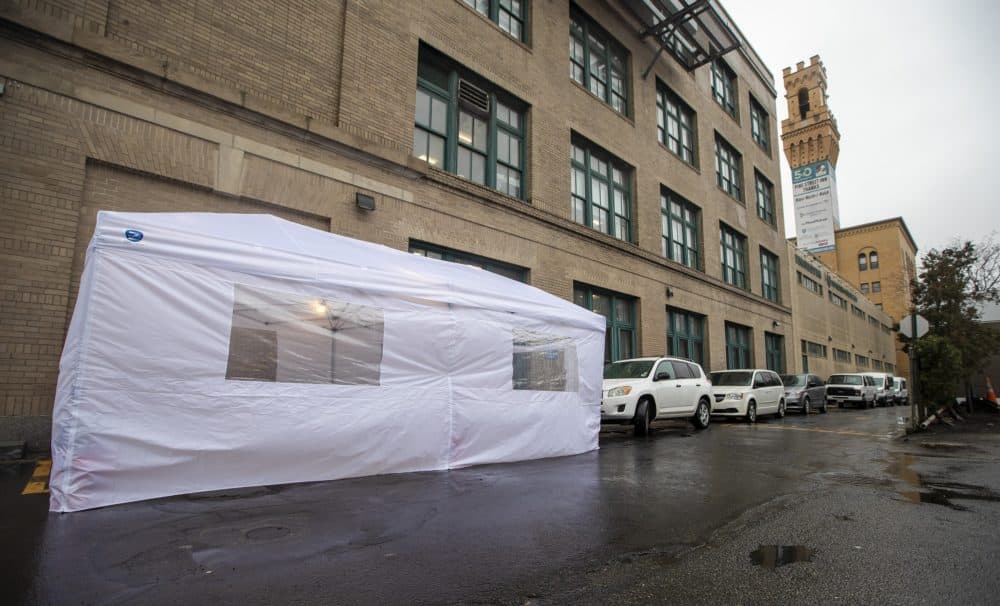Advertisement
Homeless Shelter Pine Street Inn Sees Significant Drop In Number Of Positive Coronavirus Tests

Boston homeless shelter Pine Street Inn is reporting a far lower rate of positive coronavirus tests in its latest round of testing than in an earlier round of tests in early April.
Last week, Pine Street tested 144 people who had previously tested negative during the earlier round of universal testing. Just 4% in the most recent round tested positive, compared to a 36% positive rate for the 408 people tested more than six weeks before.
"We were absolutely encouraged that the numbers went down so much," Pine Street Inn President and Executive Director Lyndia Downie says.
Testing in Boston's homeless community has consistently found that a majority of people have no symptoms or only mild symptoms of COVID-19 when they've tested positive, raising concerns about the spread of the virus in shelters.
A small percentage of the 700-plus adults in Boston's homeless community who've tested positive have been hospitalized, according to Boston Health Care for the Homeless Program. Eleven have died.
After the April testing at Pine Street, city officials worked with the state and Health Care for the Homeless to test everyone at the rest of the city's adult emergency shelters. In mid-May, city officials released results that showed 32% of people staying in those shelters had tested positive at some point in the previous two months.
Downie says moving some guests into a Suffolk University dorm has helped contain the spread of the virus. Currently, Pine Street's shelters have about half of the people that they would normally have. Along with that, the organization was able to obtain masks for everyone at the shelter facilities after the April testing. Workers had already hung plastic curtains between guests' beds, but the de-population efforts have allowed them to spread out the beds more.
Advertisement
Downie says more needs to happen to continue to contain the spread of the coronavirus and protect people who are homeless into the future.
She says more satellite shelter locations are needed to keep shelters below capacity to the point that they can properly distance beds and employ other measures to lessen virus spread. Other homeless service providers have called for the same. A spokesperson for the state's COVID-19 command center says state leaders are working to come up with a plan to add to or replace existing facilities to spread out homeless shelter populations.
Faster action to create permanent housing for people who've been homeless is also needed, according to Downie. She points out buildings such as former hotels or YMCAs with housing units that could possibly be converted quickly to housing, and she wonders if local and state officials could ease regulations that bog down the process of creating that housing.
"Finding sites is not an easy lift," she says. "But I don't know that we have a choice, because we're either going to go back to the way things were [and] have, I think, repeat episodes of this virus ... [or] we can do this the right way, which is do our best ... to find a more creative way to find housing."
"The question is, how much political will and how much financial support will it take to get there?" she continues.
Downie is also urging state and local leaders and homeless service providers to work together to create a more comprehensive, well-funded system to assess people's needs before or right when they arrive at shelters looking for help. That would allow advocates to divert them to other housing options immediately so that they don't have to enter the shelter.
Many shelters in Boston offer these so-called "front-door triage" programs, but there isn't enough funding to offer the service to everyone who arrives at a shelter.
This article was originally published on May 27, 2020.
